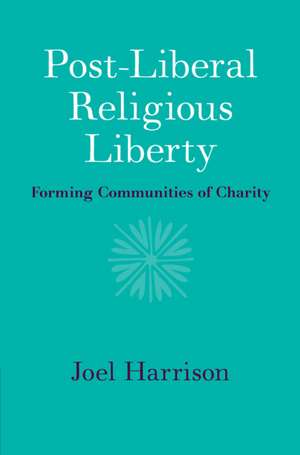Post-Liberal Religious Liberty: Forming Communities of Charity
Autor Joel Harrisonen Limba Engleză Hardback – 8 iul 2020
Preț: 726.93 lei
Preț vechi: 845.26 lei
-14% Nou
Puncte Express: 1090
Preț estimativ în valută:
139.12€ • 144.70$ • 114.85£
139.12€ • 144.70$ • 114.85£
Carte tipărită la comandă
Livrare economică 12-26 aprilie
Preluare comenzi: 021 569.72.76
Specificații
ISBN-13: 9781108836500
ISBN-10: 110883650X
Pagini: 278
Dimensiuni: 235 x 155 x 20 mm
Greutate: 0.58 kg
Editura: Cambridge University Press
Colecția Cambridge University Press
Locul publicării:New York, United States
ISBN-10: 110883650X
Pagini: 278
Dimensiuni: 235 x 155 x 20 mm
Greutate: 0.58 kg
Editura: Cambridge University Press
Colecția Cambridge University Press
Locul publicării:New York, United States
Cuprins
1. Introduction; 2. The liberal egalitarian account; 3. Secularisation challenged; 4. Modern (Christian) responses; 5. The ecclesiological account; 6. Pluralism and disagreement; 7. Conclusion.
Recenzii
'An engaging read …' Edward A. David, Studies in Christian Ethics
Notă biografică
Descriere
A radically theological-political account of religious liberty, challenging secularisation narratives and liberal egalitarian arguments.
